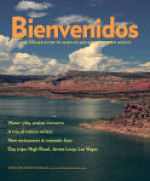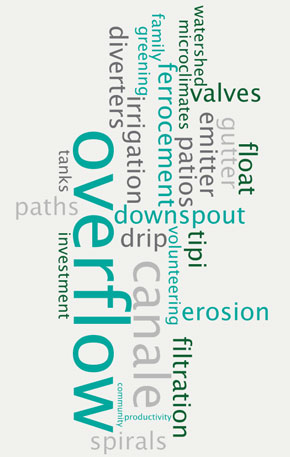The PermaDesign Weblog, with Nate Downey and Melissa McDonald!
Water Conservation for Visitors
From the latest "Bienvenidos" magazine of the Santa Fe New Mexican, here's part of my article providing water-saving tips for visitors of our great city.
FOR VISITORS
While on vacation, visitors should focus on areas where they can have the greatest effect and get the most out of their precious time in the City Different:
• "Navy showers” (a brief wet-down, followed by soap-down with the water off, followed by a brief rinse) not only save water, but such a short shower also gives you more time to get out and enjoy all the things New Mexico has to offer.
• Shut off the faucet while you shave or brush your teeth. This is also standard Santa Fe procedure. What's nice is that without all of that noisy and wasteful running water, visitors will experience a heightened sense of tranquility while doing the most mundane things - and that's very Santa Fe!
• In addition to vigilantly reusing your sheets and towels, the most important act a tourist can take is to report water leaks and waste. According to the Environmental Protection Agency, one drip per second can 'Waste 3,000 gallons per year. But waste issues can't be fixed unless people like you raise our consciousness about them. Please call 955-4222 to report any perceived problem.
• One citywide regulation that all restaurant-goers will run into is that drinking water is provided to patrons of eating establishments only upon request. This is mostly a symbolic gesture designed to start a discussion about the importance of water conservation. It's not about saving lots of water, so make sure you request water for everyone - or at least for your designated driver. Remember, you're at altitude in a dry climate. Always stay hydrated!
• The full Santa Fe experience requires at least a little hiking. If you go - and we hope you do please stay on the trails. Topsoil is extremely limited in this brittle, arid environment, and the less we stomp all over our fragile watersheds, the more absorbent-our soils will be and the less erosion we will cause. This translates into healthier arroyos, streams and rivers.
05/21/2014 | (0) Comments











Comments